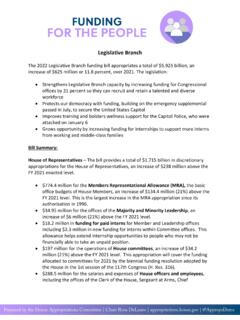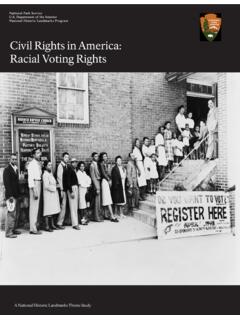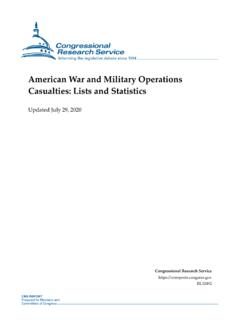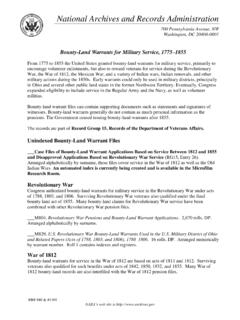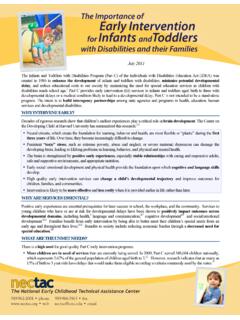Transcription of Winter Congress Bill Writing Guide
1 MIDSOHIO Winter Congress BILL Writing Guide A Guide TO PREPARING FOR THE JUNIOR STATE OF AMERICA S Congress CONVENTIONS The Junior State of America invites you to attend an exciting simulation of a congressional session where you and other high school students become Members of the United States Congress . You write the legislation! You vote in committee hearings! You speak on the floor of the House or Senate! This incredible weekend convention is entirely student-run and offers you a fantastic learning experience. This booklet contains all the information you need to prepare yourself and your delegation in the bill Writing process for MidSoHio Winter Congress Conventions. In addition, information regarding how to sponsor legislation and rules/procedures specific to JSA's Congress format are also included. Detailed instructions on how to register for the convention are in a separate registration packet.
2 If you need a registration packet or have any questions, problems, or comments, please call Junior State National Headquarters toll free at 1-800-334-5353. TABLE OF CONTENTS I. YOUR II. Writing YOUR III. THE PATH OF IV. congressional APPENDIX I. TABLE OF PARLIAMENTARY II. HOW TO WRITE III. SAMPLE ASSEMBLING A DELEGATION Each delegation will be made up of a combination of Senators and Members of the House of Representatives. Senator and Representative titles are assigned to delegates prior to the convention, though in the context of our Mock Congress there is little difference between the two roles. Delegates will receive their chamber assignments prior to the convention and will remain in their chamber for the course of the day debating various legislation. SPONSORING LEGISLATION Sponsoring legislation is the best way to get involved and fully take advantage of JSA s Congress Conventions.
3 Do you think the United States should create and implement a national health care plan? Should funding for artists be restricted based on the content of their artwork? What is your strategy for protecting our nation s environment? As the sponsor of a bill, you have the chance to address any topic on the national agenda. Every delegation must submit at least one bill for every five delegates. You can submit as many additional bills as you wish. Each bill will be sponsored jointly by one Senator and one Representative. This allows two people to research topics, write legislation, and prepare speeches together. = 1 BILL At the convention, you and your co-sponsor will present your bill, one on the floor of the House and the other on the floor of the Senate. You will learn the process and experience the passions of our nation s legislative process. Writing legislation is easier than you might think.
4 If you are politically aware and follow current events you probably already have some good ideas for legislation. Below are simple guidelines to follow for Writing a bill. 1. Select an area of interest. The first step in Writing your bill is to select a topic. Write a bill on an area of national politics that you know a little bit about. Like the Congress , the convention will deal with a broad spectrum of issues: foreign affairs, health and human services , finance, the environment, military affairs, business and commerce. 2. research . Once you decide an area of interest, read newspaper and magazine articles to get a sense of the current issues being discussed. The library of Congress offers a database of recently discussed congressional bills on a website called Thomas which can be found at The congressional research Service (CRS) provides members of Congress with nonpartisan research and analysis of issues.
5 Although these reports are not directly available to the public, some members of Congress have provided access to some of these reports on their websites. 3. Select a specific subject/ problem. The next step is to pick one problem or issue from your general area of interest on which to focus. For example, if you are interested in the war on drugs you may wish to write legislation on drug testing. Or, if you are interested in foreign affairs, you could write legislation to restrict intervention abroad. 4. Determining the type of Legislation. There are three types of legislation: A Bill, which establishes a new law; A congressional Resolution, which expresses the sentiment of Congress ; A Constitutional Amendment, which changes or adds to the Constitution. 5. Draft your bill. To begin drafting your bill, you must first concisely, in 5 to 15 words, state the purpose of your legislation. For example, legislation on drug testing might be to provide for drug testing of all commercial vehicle operators.
6 Legislation on arm sales might be to restrict military arms sales to politically unstable countries. This concise statement of purpose will be part of the title of your legislation. 5a. Rationale for Bills and Amendments: Next, you need to develop the rationale for your legislation. This should be a short paragraph that explains reasons why your legislation is necessary. For example, a rationale for a bill lowering the minimum wage for teenagers might read: A lower minimum wage for teens will decrease teen unemployment as statistics show that as the minimum wage increases so does teenage unemployment. In the inner city, where teens need gainful employment, businesses currently won t hire teenagers when they can hire an older person. Giving teenagers a chance to gain valuable job experience far outweighs the fact that they will be paid less. 5b. Whereas Clauses for Resolutions: Resolutions are non-binding statements of the opinion of Congress .
7 All resolutions should contain Whereas clauses instead of a paragraph that gives reasons why the Congress should adopt the resolution. For example, whereas clauses for a resolution condemning offshore oil drilling might read: Whereas, Offshore oil drilling is a hazard to our coastlines and coastal wetlands, and; Whereas, The needs to decrease its dependence on oil and move to cleaner forms of energy, and; Whereas, Oil rigs off shore are unsightly. 5c. The body of your legislation: The main portion of your legislation is the provisions or sections. The first section should establish the main effect of the legislation. The first section of drug testing legislation may be: All interstate commercial vehicle operators shall be subject to a random drug test at least once a year. Other sections of your legislation should establish any limitations or restrictions: The results of the drug test are to be kept confidential by the employer.
8 " Also include any penalties that accompany your new law: Employers not complying with this law shall be subject to fine of up to $10,000. All bills passed are assumed to go into effect in 90 days unless otherwise specified. If your legislation involves federal expenditures, list the amount. Generalized costs are acceptable. For example, you could increase the space budget by 50%. 6. Formatting your legislation. The title of your legislation should be centered on the top of the page along with the names of the Senator and Representative who are sponsoring the bill and the name of your high school. The first line of your bill should be worded as follows: For a Bill: Be it enacted by the Senate and House of Representatives of the United States of America in Congress assembled, that: For an Amendment: Be it amended by the Senate and House of Representatives of the United States of America in Congress assembled, that: For a Resolution: Be it resolved by the Senate and House of Representatives of the United States of America in Congress assembled, that: The body of the bill should be divided into sections and numbered.
9 Please follow the format of the several sample bills at the end of the handbook. At the bottom of the page, please include the names and email addresses of the bill sponsor(s). Please send your bill to your state s Bill Director (see your registration packet for more details): Midwest: Ohio River Valley: Southeast: Below is a description of the legislative process used at JSA s Congress Conventions. The legislative path for this weekend long convention is a modified version of the actual procedures of the Congress . 1. Legislation is sponsored jointly by a Senator and a Representative. The bill is assigned to the proper House and Senate Committees prior to the convention. You will receive a Legislative Index that contains all of the legislation and committee assignments so that your chapter can prepare for the convention. 2. In each pair of Senate and House committees, the bills are discussed in opposite order: Houses debate bills in increasing order, Senates in decreasing order.
10 The sponsors of the bill are the proponent or opening speakers on the bill. During debate, the committee may propose and pass amendments to the bill using amendment forms provided by the chair. Amendments may only be passed on the first five bills in any committee, thus ensuring that two different versions of a bill are not passed. 3. After debating the bill, the committee votes on it. If both the House Committee and Senate Committee pass the bill, it goes on to the floors of the Full House and Full Senate the next day. If either committee fails to pass the bill, it dies in committee. 4. If both legislative bodies pass identical versions of the bill, the bill will be considered law. FULL HOUSE AND FULL SENATE SESSIONS The House and Senate Sessions are presided over by Chairs and Clerks selected from the previous day. The order in which the bills are debated is determined before the sessions begin. The first order of business in the full sessions of the House and Senate is to hear reports from the committees.
